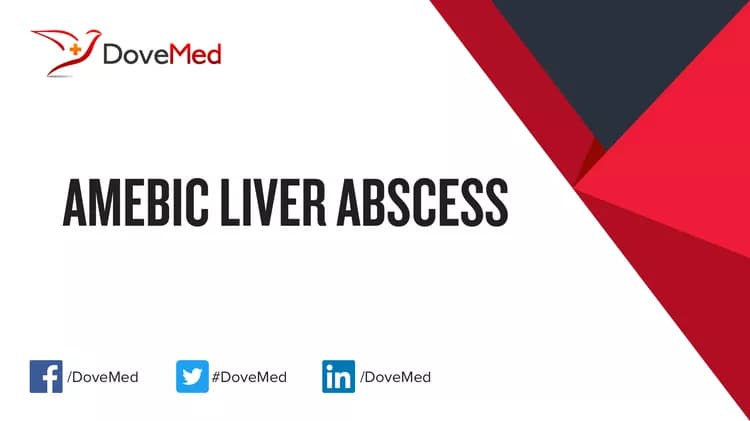What are the other Names for this Condition? (Also known as/Synonyms)
- Hepatic Amebiasis
- Extraintestinal Amebiasis
What is Amebic Liver Abscess? (Definition/Background Information)
- An Amebic Liver Abscess is a swollen area found on the liver that is filled with pus.
- In most cases, amebic liver abscesses form due to the presence of Amoebiasis. Amoebiasis is caused by the parasite Entamoeba histolytica.
Who gets Amebic Liver Abscess? (Age and Sex Distribution)
- Usually, individuals between the age of 30 and 50 suffer from Amebic Liver Abscess.
- A higher number of cases in males have been recorded.
- While it is most prevalent in males and individuals between 30 and 50, these abscesses can occur in other age groups as well.
What are the Risk Factors for Amebic Liver Abscess? (Predisposing Factors)
Common risk factors of Amebic Liver Abscess include:
- Alcohol consumption
- Advanced age
- Steroid use
- Cancer
- Pregnancy
- Malnutrition
- Recent travel to tropical areas
It is important to note that having a risk factor does not mean that one will get the condition. A risk factor increases ones chances of getting a condition compared to an individual without the risk factors. Some risk factors are more important than others.
Also, not having a risk factor does not mean that an individual will not get the condition. It is always important to discuss the effect of risk factors with your healthcare provider.
What are the Causes of Amebic Liver Abscess? (Etiology)
- Amebic Liver Abscesses are caused by the parasite Entamoeba histolytica. When the parasite enters the body, it usually travels to the intestines. It finds its way to the liver through the bloodstream, where it causes Amebic Liver Abscesses.
- In most cases, the parasite enters the body through the intake of feces-contaminated food or water. It can also be passed through human-to-human contact.
What are the Signs and Symptoms of Amebic Liver Abscess?
Common signs and symptoms of Amebic Liver Abscesses include:
- Abdominal pain
- Fever
- Diarrhea
- Joint pain
- Chills
- Jaundice
- Appetite loss
- Weight loss
- Sweating
How is Amebic Liver Abscess Diagnosed?
To diagnose Amebic Liver Abscesses, several tests that a medical professional can conduct includes:
- Abdominal Ultrasound
- Abdominal CT scans
- Abdominal MRI scans
- Blood tests for a complete blood count
- Liver scan
- Liver function tests
- Stool testing
Many clinical conditions may have similar signs and symptoms. Your healthcare provider may perform additional tests to rule out other clinical conditions to arrive at a definitive diagnosis.
What are the possible Complications of Amebic Liver Abscess?
- Complications may arise due to Amebic Liver Abscesses. The most common complication is abscess rupturing. In these cases, the pus-filled abscess breaks and releases the pus into the body, allowing for the infection to spread to other parts of the body.
- In severe cases, death may also occur due to the presence of Amebic Liver Abscesses.
How is Amebic Liver Abscess Treated?
- In many cases, antibiotics are prescribed to treat Amebic Liver Abscesses. Metronidazole and tinidazole are the most commonly used.
- Surgery may be suggested if the abscess is large and requires draining.
How can Amebic Liver Abscess be Prevented?
- To lower one’s likelihood of developing Amebic Liver Abscesses, it is important to drink clean, purified water and avoid eating contaminated food.
- It is also important to avoid contact with individual’s who have been diagnosed with Amebic Liver Abscesses or with amoebiasis.
What is the Prognosis of Amebic Liver Abscess? (Outcomes/Resolutions)
- Without proper treatment, the Amebic Liver Abscess is likely to rupture and spread the infection to other parts of the body, eventually leading to death.
- By receiving treatment, most people are able to completely cure the abscess.
Related Articles
Test Your Knowledge
Asked by users
Related Centers
Related Specialties
Related Physicians
Related Procedures
Related Resources
Join DoveHubs
and connect with fellow professionals


0 Comments
Please log in to post a comment.